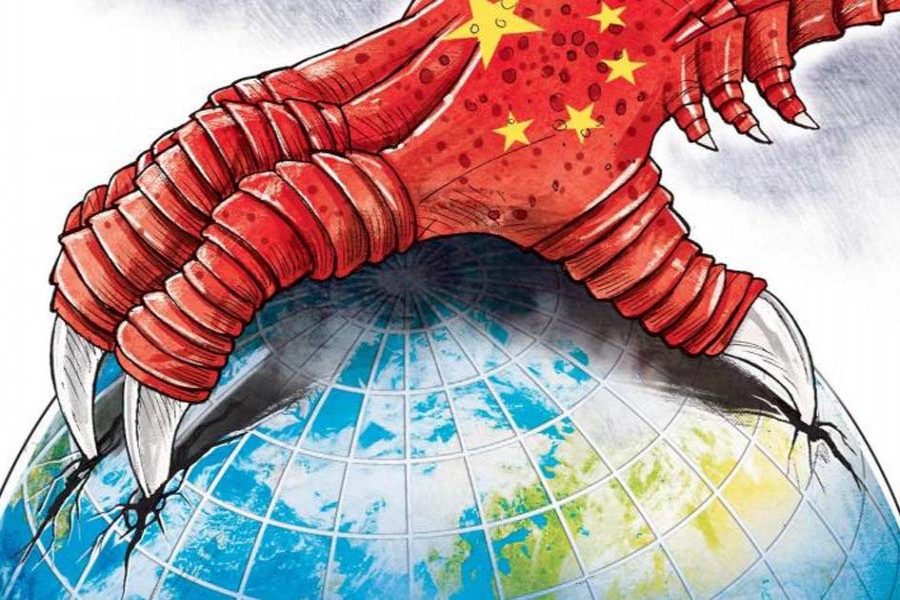Should Bangladesh worry about China's 'debt trap'? One needs to understand that to be a developed country by 2041, Bangladesh needs to continue and successfully complete the mega-development projects. The country also has the potential to become the economic hub of the sub-continent. For this, Bangladesh needs external sources of funding.
If the Chinese investment financing or loan deals are negotiated properly with competitive interest rates, the project money is utilised correctly, and only the favourable bids are accepted, then Bangladesh will be benefitted. For instance, the bridges that China has financed and constructed in Bangladesh improve the physical communication network.
Nevertheless, in 2014, during the Bangladesh Prime Minister Sheikh Hasina's visit to China, an agreement on the construction of Sonadia deep-sea port was supposed to be signed. But China changed its stance from a soft loan to a commercial loan which resulted in the cancellation of the deal. Thus, Bangladesh buried the Sonadia deep-sea port project.
China is recognised and acclaimed as 'all-weather' friend of Bangladesh. The geostrategic location of Bangladesh makes it an important country for China's Belt and Road Initiative (BRI) project. And Bangladesh is a strong supporter of China's BRI project, which needs to be appreciated from China's side. On March 22, 2016 Bangladesh joined China-led Asian Infrastructure Investment Bank (AIIB). Since then AIIB has approved major infrastrucral and developmental projects in Bangladesh which has contributed to the socio-economic development of the country. AIIB-funded projects in transport, energy, health and water bear broader direct implications to the everyday life of the people of Bangladesh. In fact, it is not possible for many states including Bangladesh to finance all the development projects with its own funding.
There are criticismsabout China's 'debt trap' in Africa. So, it is in China's interest that a new example, Bangladesh is not cited as an example of China's 'debt trap' diplomacy. Bangladesh Prime Minister Sheikh Hasina mentioned that 'Bangladesh will never step into a debt trap in my tenure' as the deals with China were properly negotiated. Bangladesh's foreign loan to GDP rate rose to 14.3 per cent in 2019, which was 12 per cent in 2018. In the case of Sri Lanka, the rate is 66 per cent while in the case of India, it is 34 per cent (bdnews24.com, July 2, 2019). A debt-to-GDP ratio for African countries is 60 per cent.
It is often claimed that China is playing its 'debt trap diplomacy' which is the dominant narratives in the Western media. There are also alternative narratives which are often overlooked. For instance, in the case of China's engagement in Africa, MehariTaddeleMaru, in his article 'Why Africa loves China' (2019) notes that 'Chinese soft loans have enabled many African governments to avoid pressure from global governance institutions such as IMF and World Bank to meet Western norms of accountability and conditionality related to political and economic reforms, such as the infamous structural adjustment that does not always serve the interest of Africans'.
So, before tagging China's 'debt trap' with Bangladesh, it is essential to examine what the financing options for Bangladesh are. Is there any proper study whether China's funding will be a curse or blessing for Bangladesh? The reality is that for low-middle-income countries, the financing options are minimal. Bangladesh and its people will be benefitted from China's investments in the development projects which are really important for the continuation of the socio-economic development of Bangladesh. It is also crucial to ensure that the loan agreements are appropriately negotiated, and the money is utilised correctly.
Md. Shariful Islam is an Assistant Professor in International Relations at the University of Rajshahi, Bangladesh.


